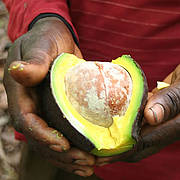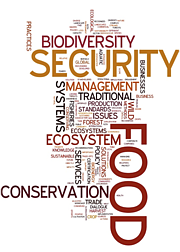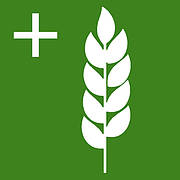Nature+ food - Key messages from the IUCN Congress Forum
09 September 2012 | Article
Nature-based solutions to food security.
Tinkering at the margins does not help; food security needs structural changes. We can feed the world but we need to think more innovatively and globally -- Amita Shah, Gujarat institute of Development Research.
Food Security is recognized as a core conservation issue today.For the first time the Forum is exploring conservation issues related to Agricultural Landscapes along side discussions on traditional topics such as biodiversity, protected areas and ecosystem management. Out of these sessions the following trends are noted:
Ecosystem services serve as a foundation for an integrated approach to food security
Ecosystem services and nature-based solutions can provide a strong foundation for rethinking food security and sustainable food production. Food production needs to integrate resilient ecosystems with diverse systems of production, taking into account community and gender rights.
There is a clear need to compile and disseminate knowledge to influence policy and practice, in particular around:
• The importance of diverse ecosystems in providing resilient food systems
• The importance of conserving wild resources that contribute to food security
As noted in a workshop, a joint statement of the heads of the biodiversity conventions makes it clear:
“Biodiversity can indeed help alleviate hunger and poverty, can promote human health, and be the basis for ensuring freedom and equity for all.”
The true cost of food needs to be reflected in price
"A sustainable way of life is only possible when prices reflect the real cost of production" -- IUCN Tweeter
To promote food security the price of food needs to reflect the actual cost of production including the impact on biodiversity and ecosystems – which is referred to as “natural capital accounting”.
To foster global food security there is need to create tools that measure the contributions of biodiversity and ecosystem processes to food production. It is essential that the benefits derived from natural systems that support food productions be taken into account when valuing the agricultural products -- especially those that are linked to maintaining crucial ecosystems services. Managers of agricultural systems need to be aware of the immediate and down stream environmental and social costs of food production. A base line standard for “natural capital accounting would go a long way to achieving this goal.
At a national, and even regional scale, it is crucial that the contributions of nature be recognized for their contributions to national/regional economies. To achieve global food security, social and environmental costs should be taken into account when calculating costs of food production. The discussion must go beyond profit and subsidies and focus on how to promote competitive advantage to those who internalize ecological costs.
To achieve global food security requires a spectrum of capacities ranging from local farmers/fishers to large industrial-scale production
Small and medium scale farming and community managed food production play an important role in food security as well as in conservation of natural resources. Lessons can be learned from small-scale fisheries in coastal areas, community-based forest management strategies that recognize the importance of traditional management systems and promote sustainable livelihoods.
The role ecosystems play in augmenting rural incomes and providing resources for food production needs to be documented and communicated to policy makers.
As noted in the World Leaders Dialogue, there is no doubt that food production and conservation can be compatible if adequate policies are developed and implemented.





